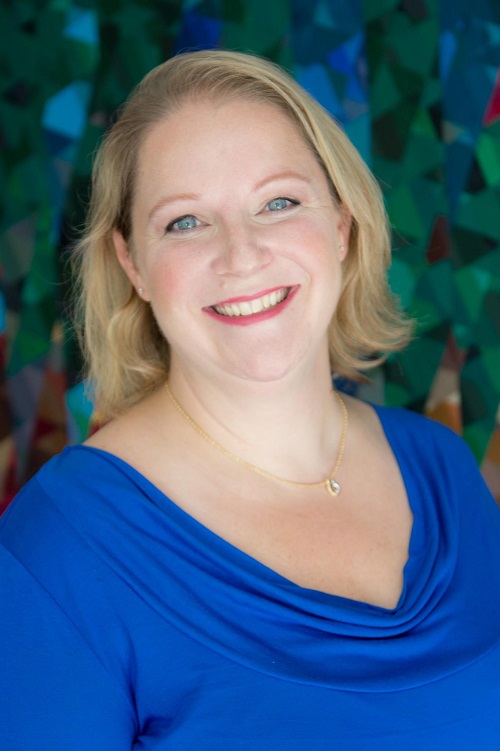Morehouse School of Medicine Collaborates with AAMC to Improve Health Care For Lesbian, Gay, Bisexual, Transgender, Gender Nonconforming and Those Born with Differences of Sex Development
Carey Roth Bayer, Ed.D., R.N., C.S.E., of Satcher Health Leadership Institute and Morehouse School of Medicine Partnered in Producing Guidelines
 Atlanta, GA -- December 16, 2014 -- Morehouse School of Medicine (MSM) joined with
the Association of American Medical Colleges (AAMC) in creating an important new set
of resources aimed at reducing health disparities experienced by people who are lesbian,
gay, bisexual, transgender (LGBT), gender nonconforming or born with differences of
sex development (DSD). The resources include the first-ever guidelines for training
physicians to care for these populations, a report on how to apply these guidelines
in the medical school curriculum and a professional development video series. The
guidelines and report were released in November and the video series will be released
in January 2015.
Atlanta, GA -- December 16, 2014 -- Morehouse School of Medicine (MSM) joined with
the Association of American Medical Colleges (AAMC) in creating an important new set
of resources aimed at reducing health disparities experienced by people who are lesbian,
gay, bisexual, transgender (LGBT), gender nonconforming or born with differences of
sex development (DSD). The resources include the first-ever guidelines for training
physicians to care for these populations, a report on how to apply these guidelines
in the medical school curriculum and a professional development video series. The
guidelines and report were released in November and the video series will be released
in January 2015.
People who are LGBT, gender nonconforming or born with DSD often experience challenges when seeking care in doctors' offices, community clinics, hospitals and emergency rooms. These experiences, which can range from being made to feel unwelcome to outright discrimination and mistreatment, lead to poorer physical and emotional health.
"Addressing health disparities in LGBT populations fits well with Morehouse School of Medicine's tradition of serving the underserved," said Carey Roth Bayer, Ed.D., R.N., C.S.E., Associate Professor of Community Health and Preventive Medicine/Medical Education at Morehouse School of Medicine and Associate Director of Educational Leadership for the Satcher Health Leadership Institute.
The AAMC resource guide identifies 30 competencies that physicians must master. These competencies fall under eight domains of care critical to training physicians. This competency-based framework will allow medical educators to integrate the new guidelines into existing curricula more easily and encourage faculty and health care professionals to move away from thinking of patients in these groups as separate from the general patient population.
Dr. Bayer served on the AAMC Advisory Committee on Sexual Orientation, Gender Identity and Sex Development and wrote and edited several sections of the report. In addition to Dr. Bayer's involvement, current MSM medical student Jennifer (Jae) Goines and lore dickey, Ph.D., Health Policy Leadership Fellow from 2011 to 2012, will appear in the professional development videos.
David Satcher, M.D., Ph.D., Director of the MSM Satcher Health Leadership Institute and former U.S. Surgeon General has championed Morehouse's leadership role in this project. "When it comes to neglected areas such as LGBT, gender nonconforming and DSD patient health, leadership development in addressing health disparities is critical," he said.
"The new AAMC competencies, resource guide and video series on LGBT, gender nonconforming and DSD patient health are important for training future physicians to care for all patients in a culturally competent manner," said Valerie Montgomery Rice, M.D., MSM's President and Dean. "I am proud of the leadership of Morehouse School of Medicine faculty, students and alumni in the development of these ground breaking resources."
As a historically black medical school based in the South, MSM plays an important role among academic medical centers leading the way in this area. Morehouse has already taken significant steps to create an inclusive climate for LGBT students, staff and faculty; to teach medical students about sexual health and sexuality; and to address the needs of LGBT patients. For example, all medical students receive training in LGBT and DSD health issues as curricular components in the school's Fundamentals of Medicine courses. Students can also choose fourth year electives on human sexuality, sexually transmitted diseases and adolescent medicine. In addition, the Pediatric Residency Program ensures that all pediatric residents receive content specific to LGBT and DSD health.
"All people have a sexual orientation, gender identity, gender expression and sex development. In general, medical and health professional education has not adequately addressed this reality," Dr. Bayer explained. "Understanding how to sensitively approach sexuality with patients is integral to providing respectful, high quality health care to all, especially those who are LGBT, gender nonconforming or born with DSD."
The report is available for download here.

